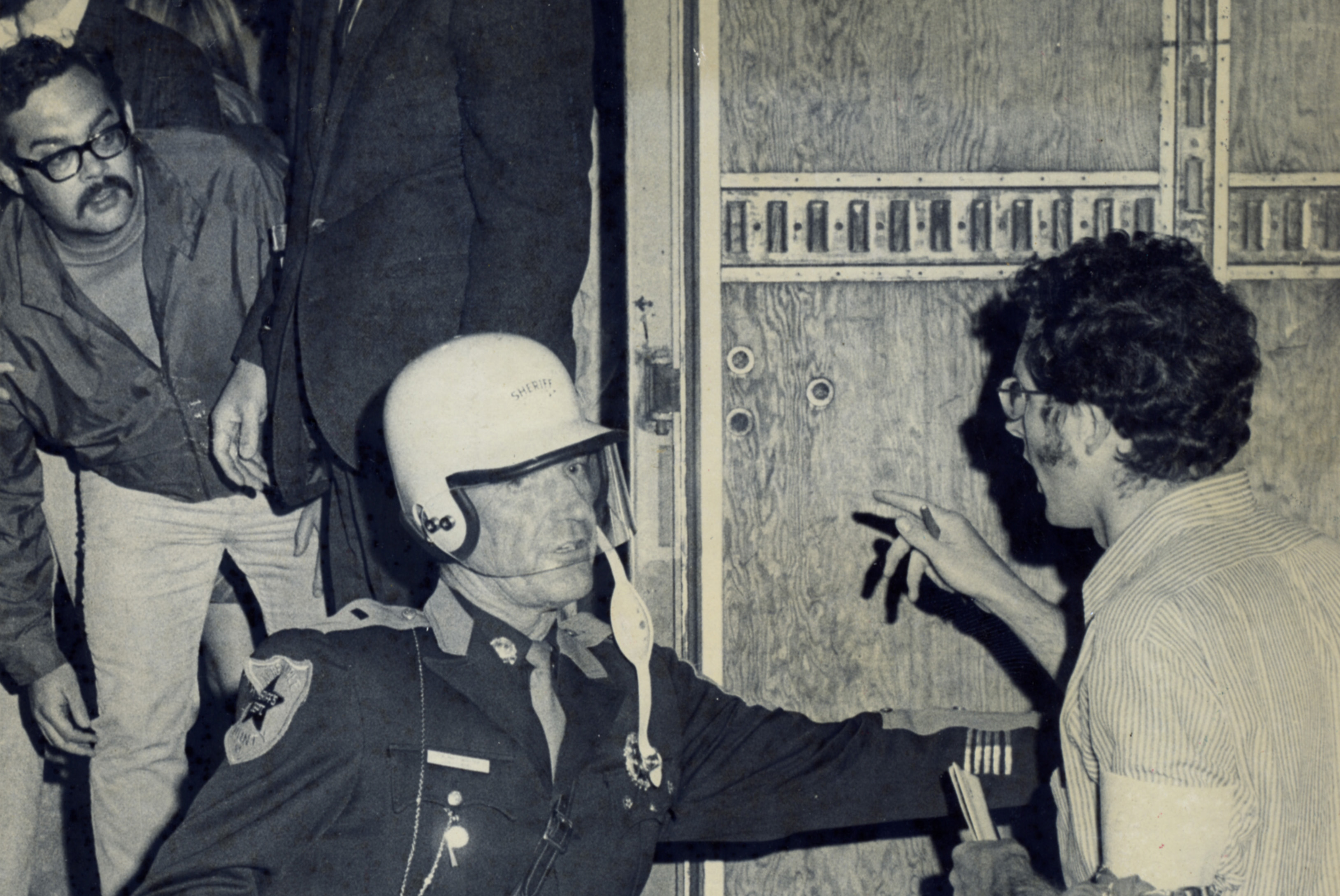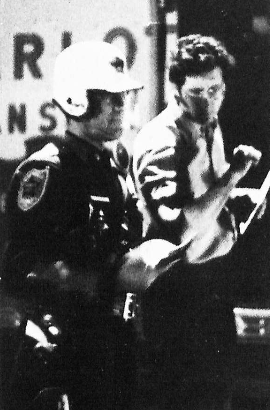When Neil McBride chose to purse a law degree at UVA, he knew he would be attending a school that was both reputable and demanding. Unlike most Law students, McBride did not reside on or near campus. Given his geographical distance from Grounds—15 miles—McBride says he was not as tied in with the Law community as those who lived in dorms. Still, he got involved with social and recreational activities, like hanging out in the Clark Hall lounge and playing tennis.
McBride claims the cultural experience at UVA depended on who you were. As he recalls, their class had few women and even fewer African American students. Overall, it was a “homogenous” and “gentlemanly” environment, he says. At the law school, most students were focused on their coursework and “getting out of there,” but the war and many social issues loomed large in their minds. The law school and other colleges lost their deferment in 1968. McBride completed his draft physical, a minor ankle injury prohibited him from military duty.
McBride was a politically active law student. In the summer of 1969, he worked for the American Civil Liberties Union (ACLU). The following year, McBride went to Washington, DC to lobby for the passage of the Legal Services Corporation Act. He and others had worked on the bill, which did not pass until 1974. Back at the law school, McBride was an active member of the Legal Aid Society, which he says was started by students. Professors Charles Whitebread, Dick Howard, and others were involved as well.
There was a strong connection between the Legal Aid Society and the legal marshals. McBride does not recall exactly how he became a marshal, but he remembers the law students who initiated the effort, namely David Levy and Daniel Sullivan. As soon-to-be lawyers, McBride and his peers felt they needed to play a role in the strike by offering legal assistance to arrestees. Having witnessed Kent State, they worried a similar situation could befall UVA.
The key to being an effective legal marshal, McBride says, was reporting the circumstances and facts of the arrests back to faculty who were prepared to act as legal counsel. According to McBride, the Law faculty were supportive of marshal efforts. Dean Monrad Paulsen and Professor Dick Howard offered their assistance.
McBride spent the early evening of May 8th studying on Grounds. Afterwards, he put on his marshal armband, grabbed a notebook, and headed for the Rotunda where he saw people congregating. He approached the Mayflower van and observed police officers shoving people in one-by-one. McBride found an officer and explained that he was a marshal in hopes that he could jot down the names of the arrestees. The officer informed McBride that he too was under arrest. Off he went into the Mayflower van. McBride jests that his time as a legal marshal lasted all of three minutes.
Neil McBride (right) attempts to jot down the names of the Mayflower arrestees and is subsequently arrested. Gerald "Gerry" MacFarlane ('70) peeks out from inside the van.
In retrospect, McBride wishes he and the other legal marshals had communicated their mission to law enforcement beforehand. More communication on both sides might have produced a different result. McBride claims that police were well-trained for and even anticipated this moment.
A police officer escorts Neil McBride to the Mayflower van.
McBride met a diverse group of arrestees inside the van. There was the obvious lot of student demonstrators, but then there were others who were completely uninvolved. McBride distinctly recalls seeing a couple in the van who had just left a fraternity party. The man was dressed in a tuxedo and the woman in a white, formal gown. Among the group was a Shakey’s Pizza delivery man who was en route to UVA President Edgar Shannon’s home. Since he never made it to the mansion, he shared the three pizzas with his fellow arrestees while they were still hot.
While McBride describes the arrest as a release of pent up aggression from police, he personally was not afraid, although he suspects other arrestees who were physically pulled from their Lawn rooms or hit with batons may have felt otherwise. When the van left the Lawn in the early hours of May 9th, it was filled to the brim. The van would make a second trip that evening.
As they arrived at the police station, McBride wondered just how long the processing would take—hours or days. He knew Law professors and local attorney John Lowe would be there, but he had no idea if they would have access to him and others. Officials divided them by gender and set their bonds. McBride was released on recognizance and did not have to post a bond or bail. The others were released by the next morning. The arrests frustrated McBride, as it substantiated his feelings about the “system.”
McBride was aware that his arrest record could be an issue. For each Bar exam he completed, McBride had to submit a statement describing the nature of his arrest. No one ever raised any questions, and McBride went on to work for Ralph Nader that summer. Remembering May Days fifty years later, McBride says the May strike altered his conception of change and how to bring it about.


